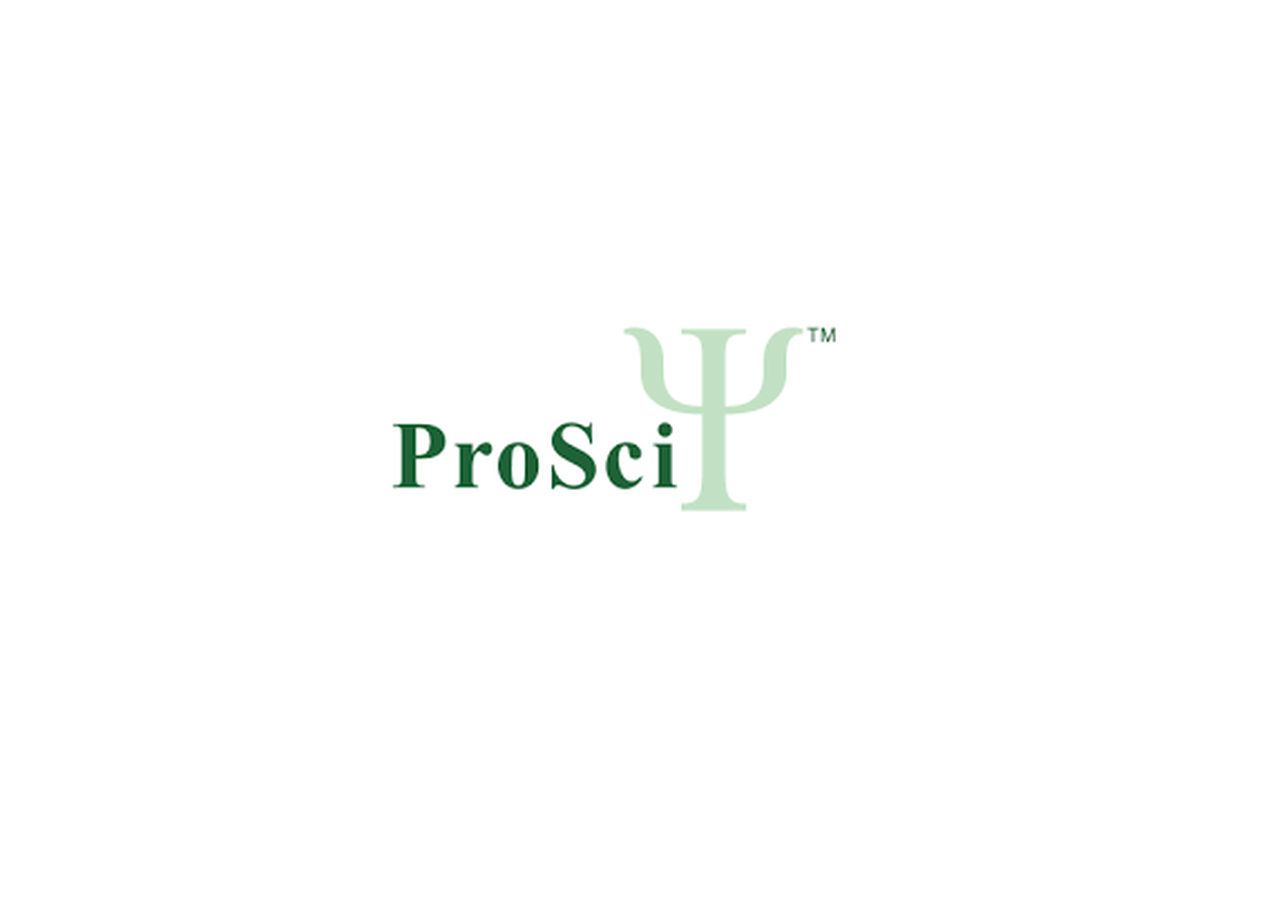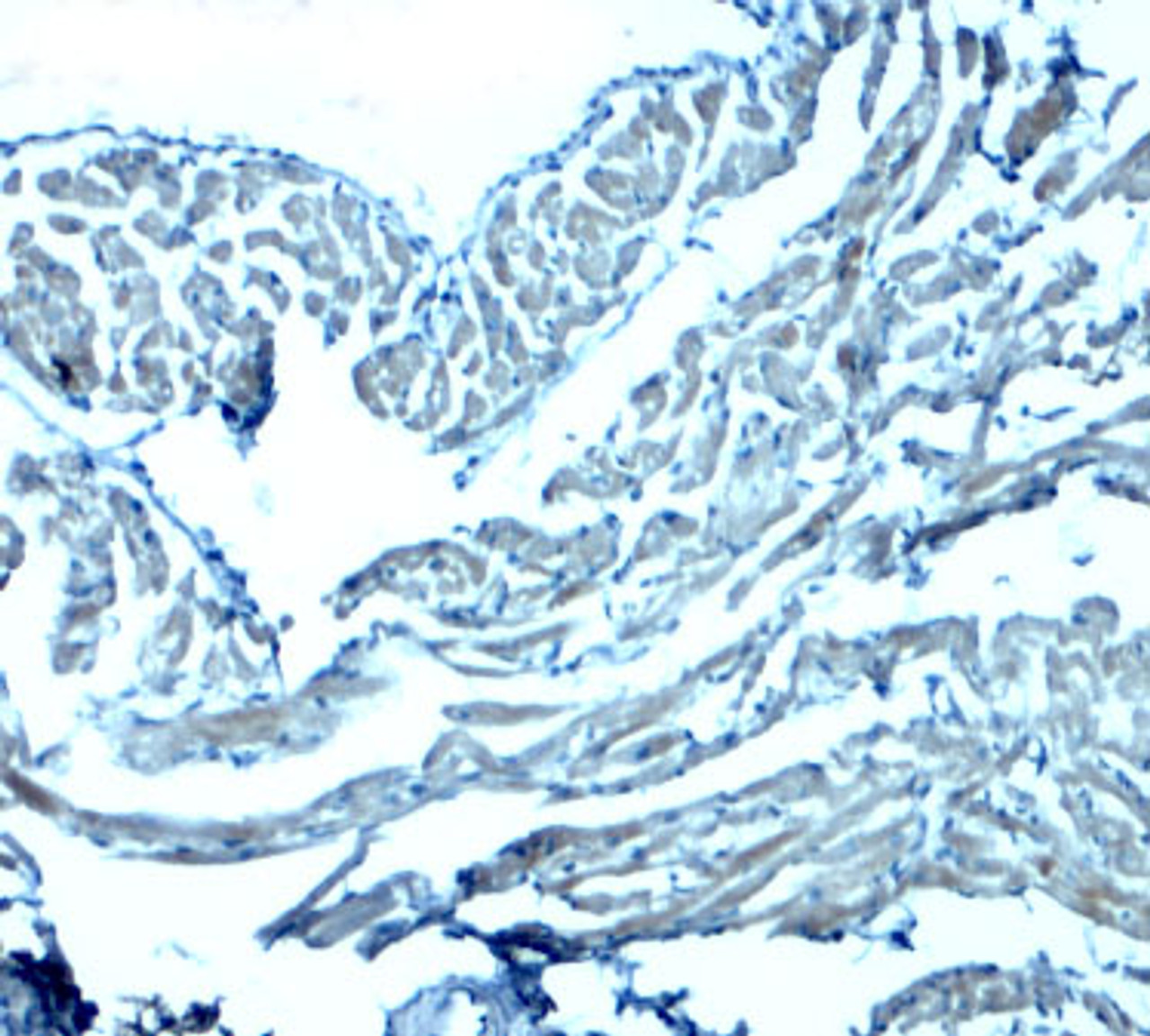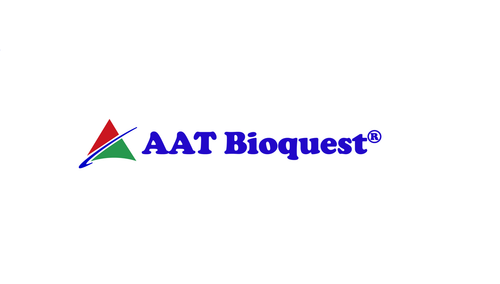Product Description
GAS6 Antibody | 8365 | ProSci
Host: Rabbit
Reactivity: Human, Mouse, Rat
Homology: Predicted species reactivity based on immunogen sequence: Rabbit: (95%)
Immunogen: GAS6 antibody was raised against a 19 amino acid peptide from near the amino terminus of human GAS6.
The immunogen is located within amino acids 60 - 110 of GAS6.
Research Area: Apoptosis, Homeostasis
Tested Application: E, WB, IHC-P
Application: GAS6 antibody can be used for the detection of GAS6 by Western blot at 1 - 2 μg/mL. Antibody can also be used for immunohistochemistry starting at 2.5 μg/mL.
Antibody validated: Western Blot in mouse samples and Immunohistochemistry in mouse samples. All other applications and species not yet tested.
Specificiy: GAS6 antibody is human, mouse and rat reactive. At least four isoforms of GAS6 are known to exist; this antibody will only detect the longest isoform.
Positive Control 1: Cat. No. 1401 - Mouse Heart Tissue Lysate
Positive Control 2: N/A
Positive Control 3: N/A
Positive Control 4: N/A
Positive Control 5: N/A
Positive Control 6: N/A
Molecular Weight: Predicted: 75 kDa
Observed: 75 kDa
Validation: N/A
Isoform: N/A
Purification: GAS6 Antibody is affinity chromatography purified via peptide column.
Clonality: Polyclonal
Clone: N/A
Isotype: IgG
Conjugate: Unconjugated
Physical State: Liquid
Buffer: GAS6 Antibody is supplied in PBS containing 0.02% sodium azide.
Concentration: 1 mg/mL
Storage Condition: GAS6 antibody can be stored at 4˚C for three months and -20˚C, stable for up to one year.
Alternate Name: Growth arrest-specific 6 protein, AXSF, AXLLG
User Note: Optimal dilutions for each application to be determined by the researcher.
BACKGROUND: The growth arrest-specific 6 (GAS6) protein is a gamma-carboxyglutamic acid (Gla) -containing protein and a member of a family of plasma vitamin K-dependent proteins. GAS6 is involved in vascular homeostasis, cell proliferation, apoptosis, leukocyte migration, and platelet aggregation (1, 2) . GAS6 is the ligand for the type I transmembrane receptor tyrosine kinase receptors Tyro3, Axl, and Mer (3) . This gene is frequently overexpressed in many cancers and has been implicated as an adverse prognostic marker (4) . Elevated protein levels are additionally associated with a variety of disease states, including venous thromboembolic disease, systemic lupus erythematosus, chronic renal failure, and preeclampsia (2) .
 Euro
Euro
 USD
USD
 British Pound
British Pound
 NULL
NULL












